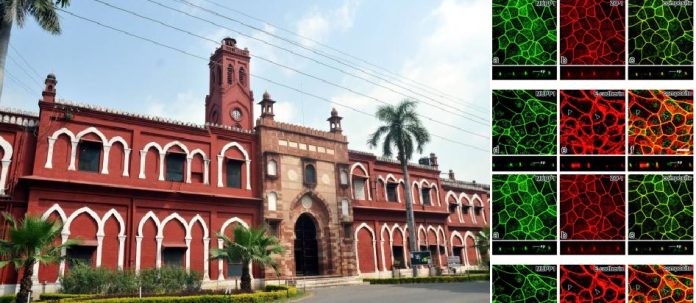Aligarh: A research team at Aligarh Muslim University (AMU) has identified a new virus-linked gene, MUPP-1, in breast cancer that promises to make treatment more effective and less time-consuming. The discovery, made during the doctoral study of researcher Ghazala Sultan, sheds light on hidden mechanisms of cancer cell growth and spread.
According to Professor Swaleha Zubair from AMU’s Department of Computer Science, the study combined biological research with machine learning models. These tools helped decode complex cancer pathways and identified potential driver genes that play a role in disease progression. This breakthrough is expected to help doctors diagnose faster and design more targeted treatment strategies for breast cancer patients.
The team has also developed two new digital resources for researchers and clinicians. The first is BRCAFEM Database, which compiles information about breast cancer-related genes, their roles, associated drug structures, and clinical data. This database is designed to serve both researchers and the general public as a reliable knowledge source.
The second is GENEXAT Tool, a software that allows easy analysis and visualization of omics data. It features heatmaps, volcano plots, network diagrams, dot plots, principal component analysis, and survival analysis. One of its key benefits is that it enables biologists to analyze large datasets without requiring programming skills.
The AMU discovery and resources are being seen as a step forward in breast cancer research, opening new doors for early detection and precision treatment.




